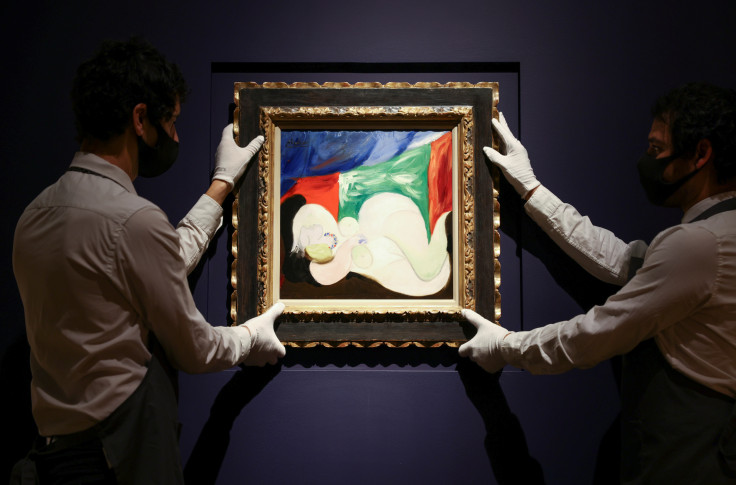Does the key to a healthy mind lie in pretending to be an art thief?
A fascinating study from Duke University suggests that the act of playing as an art thief can improve the mind by heightening one's curiosity.

The beauty of art is that it is a medium that encourages you to think. You can easily get lost in its vivid colours, emotionally connect to its stark and challenging imagery, and come to your own interpretation of the message that the artist is trying to convey.
Another reason that art as a whole can often be so captivating lies in its natural ability to make us curious, whilst inflaming the deepest depths of our imagination.
Now, if I told you that viewing art and creating art can be pleasantly therapeutic, you'd probably believe me, right? You might even be an artist yourself, or you might be an avid regular at some of the greatest, most aesthetically-pleasing galleries around London.
Incidentally, what if I told you that, for the curious individual, the act of pretending to be an art thief can also be therapeutic?
I can imagine this statement would have you quite baffled. Allow me to elaborate.
The results of a new and fascinating study from Duke University in Durham, North Carolina seem to suggest that adopting a curious mindset over a high-pressure one can enhance memory, greatly improve mental health and lead to a healthier mind.
To conduct this study, researchers from the university recruited a total of 420 adult participants, all of whom were told to pretend to be art thieves for a day and scour a virtual art museum for valuable paintings whilst avoiding the patrolling security guards.
Each of the participants was randomly assigned to one of two groups and was even given different backstories.
"For the urgent group, we told them 'you're a master thief, you're doing the heist right now. Steal as much as you can!'
Whereas for the curious group, we told them they were a thief who's scouting the museum to plan a future heist."
Alyssa Sinclair, PhD, a postdoctoral researcher at the Duke Institute for Brain Sciences.
Despite being given different backstories, participants in both groups played the exact same computer game and were scored in exact same way.
They each explored a grand art museum with four coloured doors; by clicking on each door, a painting was revealed, along with its value.
It should be worth noting that some of the rooms held more valuable collections of art, and, no matter which scenario they were pretending to be in, each group earned real bonus money when they found more valuable paintings.
The impact of these differing mindsets was made apparent the following day. When the participants logged back into the simulation, they were immediately met with a pop quiz that challenged their memory into recognising over 100 different paintings, along with how much they were worth.
According to Dr Sinclair, the curious participants were able to remember more of the paintings than the urgent group members.
However, the urgent group participants had a different advantage. The group proved to be better at figuring out which doors hid more expensive paintings and, as a result, they stole paintings of significant value.
So, now you're probably wondering – what was the purpose of this study? Why did the researchers ask 420 people to be art thieves? And why are the two groups with different mindsets?
Well, as Dr Sinclair puts it: "If you're on a hike and there's a bear, you don't want to be thinking about long-term planning, you need to focus on getting out there right now."
The mentality that encouraged this study revolved around the idea of how an ardent sense of urgency can make people perform less effectively. For instance, being in an urgent, high-pressure mode might be the best option for a short-term problem, not a long-term one.
However, when it comes to maintaining a healthy mind through the encouragement of long-term memory or action, stressing people out to their limits proves to be less effective.
Dr Alison Adcock, PhD, MD, commented: "Most of adult psychotherapy is about how we encourage flexibility, like with curious mode. But it's much harder for people to do since we spend a lot of our adult lives in an urgency mode."
Dr Adcock continued: "These thought exercises may give people the ability to manipulate their own neurochemical spigots and develop 'psychological manoeuvres', or cues that act similar to pharmaceuticals."
"For me, the ultimate goal would be to teach people to do this for themselves – that's empowering," he concluded.
© Copyright IBTimes 2025. All rights reserved.






















